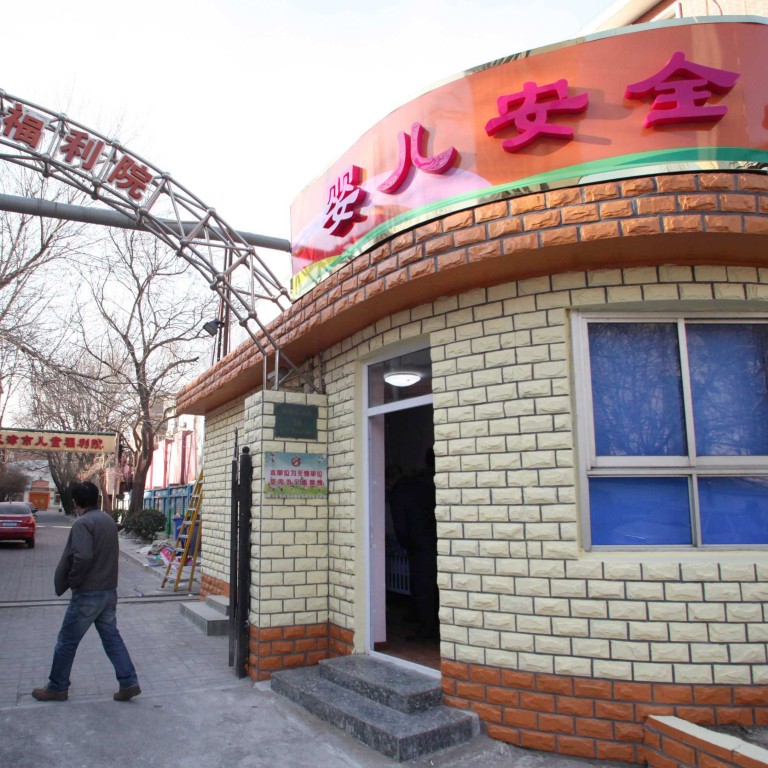
'Baby hatches' are no substitute for a social welfare system
Child abandonment is a symptom of deeper social problems, with no simple solution
A controversy is raging over the growing phenomenon of "baby hatches" on the mainland amid Guangzhou's abrupt suspension of its new facility after being overwhelmed by abandoned babies.
Baby hatches, which originated in Europe in the 18th century and still exist in many countries, including Japan, Italy, Germany and South Africa, are believed to help save infants who would otherwise be dumped in the streets.
Mainland China's first baby hatch, or "baby safety island" as it is called in many provinces, was created in Shijiazhuang , Hebei province, on Children's Day in 2011.
The Chinese version takes the form of a shelter with a bed, an incubator, air conditioner and infrared sensor, allowing people to abandon a baby in a safe and anonymous manner.
The pilot shelter received 183 infants in its first two years. With only a third of abandoned babies surviving beforehand, the shelter led to an immediate fall in the death rate.
The Ministry of Civil Affairs announced in July that such facilities would be expanded across the mainland. Ten more provinces have since set up a total of 25 baby hatches. More are planned in 18 other regions, the China Centre for Children's Welfare and Adoption says.
Under the mainland's Criminal Law, anyone who abandons a person under his care is liable to up to five years in jail. One who abandons a baby in a remote place in flagrant disregard of its right to life may be liable for murder. But in December, vice-minister for civil affairs Dou Yupei said baby hatches were legal and in line with the principles of "protecting lives" and "children's rights", citing overseas examples.
Critics say "legalisation" of abandonment reduces parents' guilt and panders to a preference for male heirs. But without those shelters, proponents say, many babies would have perished.
Guangzhou's first baby hatch suspended admissions six weeks after it opened on January 28, during which it had received 262 babies. All were reportedly ill or disabled, with nearly two-thirds accompanied by cash and a note saying the parents could not afford huge medical bills and special-needs education - a phenomenon commonly seen in other mainland baby hatches.
There is a view that while baby hatches give children basic protection, they are only the first step in addressing the poor social welfare system.
There is no national health insurance system. Provincial governments provide only basic medical care, often based on residents' household registration, or , depriving children of migrant workers of care.
Baby abandonment is thus a symptom of much deeper problems. Only with a holistic approach and a sustainable system can the mainland genuinely protect children's rights and their lives.
